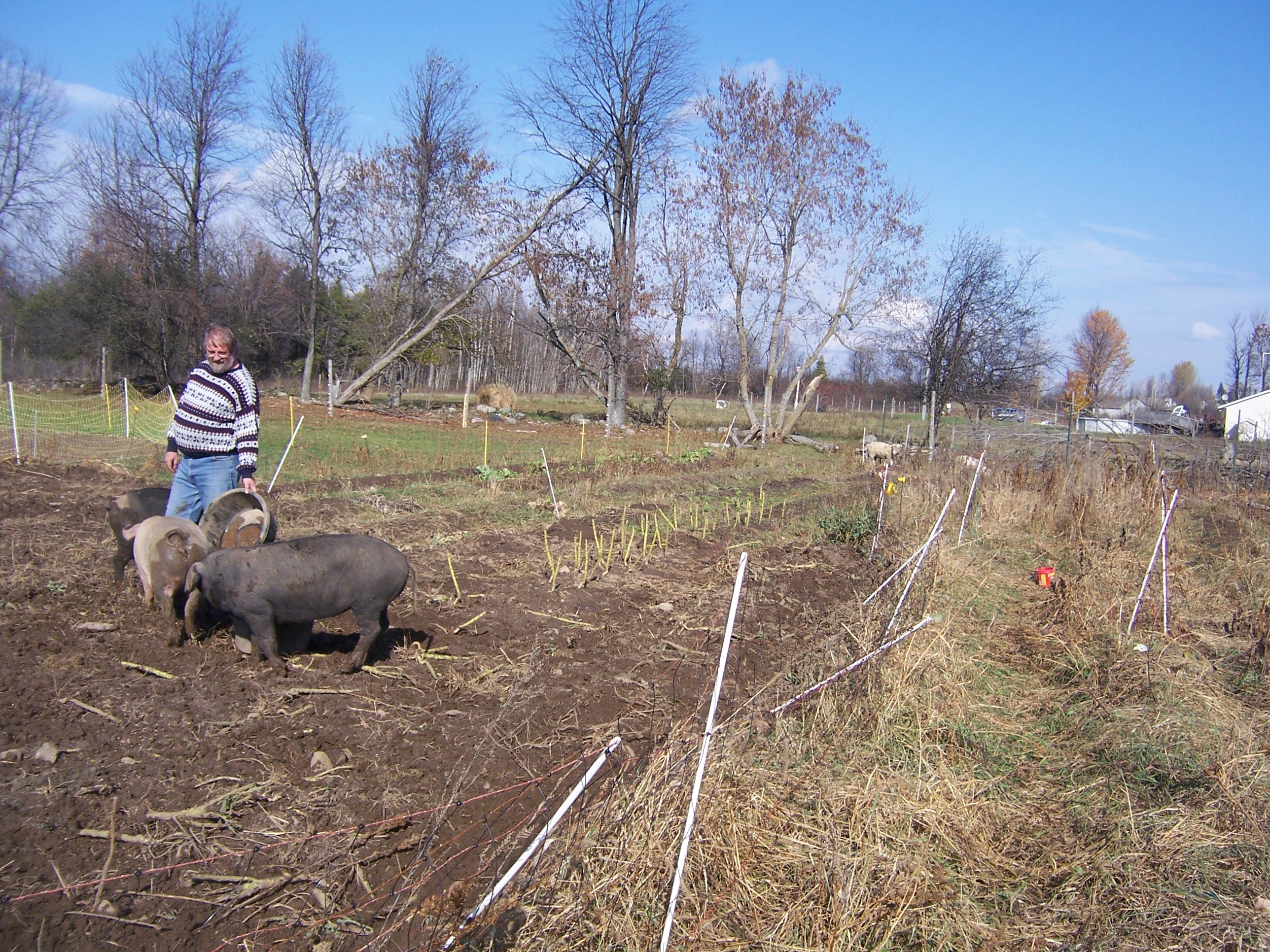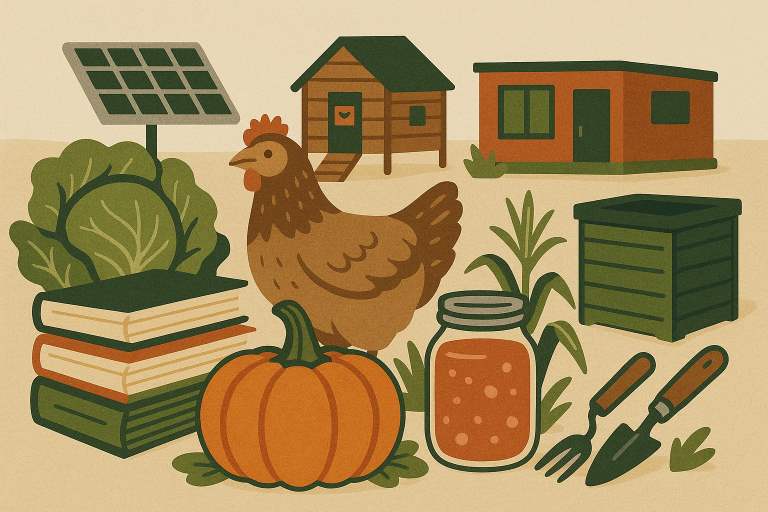Why sustainable organic farming is important to your farm futureWhy am I writing about sustainable organic farming? Because I believe we are headed for changes of massive proportions in the near future. I believe that declining oil, increasing social and financial upheaval and the devastation of our environment will irrevocably change how we live in North America.
Carefully Curated Resources For The Homesteader and Prudent Property Owner The world seems to be a little unsettled these days. I'm always looking for ways to make New Terra Farm more self-sufficient and productive. Here's a few of the best ways I've found to make self-sufficiency happen. Useful Homesteader Resources There are a couple kinds of
sustainability that are critical to a small farm. The first is
ecological sustainability; by this I mean trying to reduce the amount of
stuff you have to ‘buy in’ to operate your farm.
 Piggies help clean up our garden too Piggies help clean up our garden tooIn a similar fashion, I rotate my chickens through my fields to keep them fertile (see
how to raise meat chickens). And, we are bringing in honeybees to help with pollination in the garden, and to eventually add another cash crop.
More like Sustainable Organic Farming
Is organic food naturally better for you? Does your family wonder about the advantages of organic food? Get the facts here! You may own a small farm property, or be thinking about moving to the country. If you want to learn how to farm successfully, and make money on your small farm, follow these 5 steps. The whole world eats petrochemicals, and at an increasing rate. Let me explain that statement, and also what may happen when the availability of cheap oil is curtailed. Eating Oil What do we mean by 'sustainable farming'? Most definitions refer to
ecologically-sound farming practices, financial sustainability of the
farm, and the need to preserve that capacity for future generations. Here's how we try to do that at New Terra Farm Floating row cover is made of a light spun polyester fabric, and is used for both frost protection and as a physical barrier against insects. Is there really a difference in the vitamin and mineral content of organically-grown food? An analysis of organic food nutrition clearly shows that 'natural' is naturally better! Learning how to make compost tea is pretty straight-forward; we use a lot of compost tea in our organic market garden, to give our plants a boost and to 'water in' our transplants. Here's what you will need to make your own batch OK, get ready for an epic rant . . . Why do we need a Food Revolution? Get my FREE One-Acre Farm Plan and learn how to pigs, chickens and more, integrated with an organic market garden, to make more money from your small property.
|
See something you like? Share!
Recent Articles
-
Farm training for the new or wannabe farmer
Jan 02, 26 10:38 AM
Practical farm training from award-winning New Terra Farm -
Farm grown reviews of products recommended by New Terra Farm
Dec 04, 25 06:26 AM
Find great farm and garden products in my farm grown reviews -
Best Chicken Coop and Accessories for Small Farms and Homesteads
Nov 30, 25 09:18 AM
Looking for the best chicken coop? Here are the top coops, accessories, nest boxes, and gear to build a safe, productive poultry setup.



